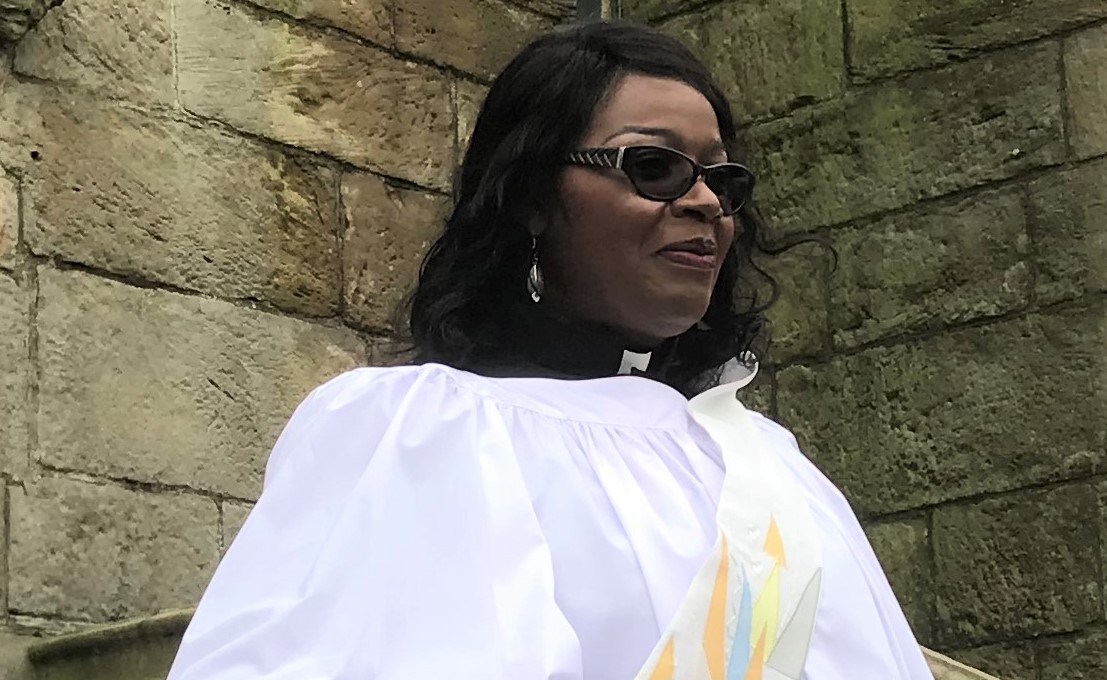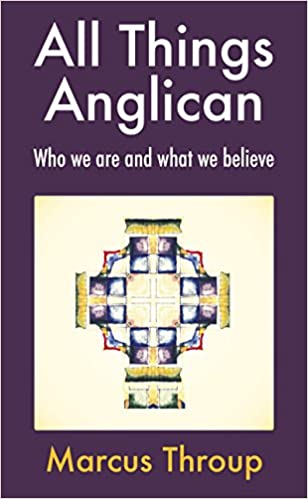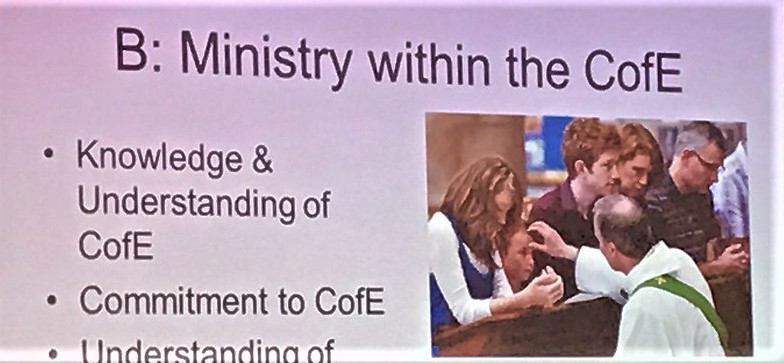Some things that may help you to understand the Church of England, especially commonly used words!
What is the difference between a vicar and a priest (or a rector or a chaplain)? And what's a curate?
After their training, people are ordained by a bishop. They become reverend and will often start to wear a "dog" collar. For the first year of their ministry they are a Deacon, and are not permitted to do certain things yet, such as preside at Holy Communion. They become a curate - an "apprentice" vicar, under the supervision of an experienced vicar. (The vicar who trains a curate is called the Training Incumbent). Once someone is ordained, they remain a "reverend" for life, including retirement.

A year later, they are ordained priest and can now do the full range of clergy duties. But they remain a curate for a couple more years before going on to take up a role where they are fully responsible for a parish, or as part of a team of clergy, where they would be a "team vicar" or assistant priest.
In the Church of England, a vicar is usually the clergy person in charge of a parish (see below). They are sometimes a called the "parish priest" or "the minister". In more traditional catholic parishes they are often addressed as "Father" or "Mother".
For obscure historic reasons, some vicars are known as rectors instead. In a group of parishes with several clergy, the leading vicar will often be known as the Team Rector.
The vicar in charge of a cathedral is called a Dean. The person in charge of the worship in cathedrals is called a precentor. The other clergy in cathedrals are called canons. Some clergy and lay people are given an honorary role in the cathedral and so are called "honorary canons".
# It's worth noting that different denominations (such as Roman Catholics, Methodists and Lutherans) often use the same words to mean quite different things.
What are bishops and archdeacons?
The Church of England is divided into areas know as dioceses. The priest in charge of the whole diocese is the diocesan bishop but sometimes (as in the Diocese of Leeds) the diocese is sub-divided into areas and each area has an area bishop.
The bishop has other senior clergy to help him/her and these are known as Archdeacons.

What is an ordinand?
An ordinand is someone who has been through the discernment process and is now training (or about to train) for ordination. They are a "trainee vicar" but not yet a reverend.
What are Readers or Licensed Lay Ministers?
Some people are trained and authorised by the bishop to lead, preach and minister in parishes, under the supervision of their vicar. "Lay" means "not ordained", so they are not called reverend, but they have had theological training and minister under a license from the bishop. The Church of England has had Readers for over 150 years but nowadays they are called "Licensed Lay Ministers. There are an increasing variety of ministries that are authorised by the bishop or locally in the parish, such as Licensed Worship Leaders.
Do vicars get paid?
Yes! - unless they are SSMs (see below).
Will I get a free house?
If you are in a stipendiary role, then there is usually a house for you to live in, but it will often be used for your work, with a study provided, and you might need to hold meetings there. You are a temporary tenant of the house and on retirement you will have to find somewhere to live, so start saving now!
What are SSMs (Self Supporting Ministers)?
SSMs are those who have offered to serve as clergy but without remuneration. Clergy pay is traditionally known as a "stipend", so those who minister without being paid used to be called Non-Stipendiary Ministers (NSMs) but nowadays they are known as Self-Supporting Ministers.
In some dioceses there are Ordained Local Ministers (OLMs) but we currently don't have any in this diocese.
Who decides if I can be trained to be a vicar?
The final decision rests with the diocesan bishop but his/her work is mostly delegated to the Diocesan Director of Ordinands and Vocations and their team. Nevertheless, when a candidate attends a Bishop's Advisory Panel (BAP), it is the bishop who receives the report and considers whether to accept the recommendations.
What is a diocese?
The Church of England is divided into two Provinces - Canterbury and York, each with an Archbishop, but the Archbishop of Canterbury is always senior.
Each of the two provinces is further divided into Dioceses, each with its own Diocesan Bishop.
What is a parish?
Each diocese is divided into parishes, each normally with its own parish church. This means the Church of England takes responsibility for every square yard of the country, and every person living in each parish.
How do I train to be a vicar
Please see this page.
What do vicars do all day?
The daily life for most clergy is rich and varied, but will usually include prayer of course. Parish clergy have to plan and lead services on Sundays and other days. They baptise, marry and conduct funerals. They often have roles in the community such as being a school governor, and might also be involved in school assemblies. Much of their time is also spent in pastoral work and some administration, including chairing meetings. Clergy are called to lead their congregation in mission to those outside the church.
Specialist clergy, such as chaplains will obviously have a different average day.
The ordination service includes many helpful phrases that describe the work that clergy do,
For a helpful guide to some of the words and terms on this page, we recommend the book "All Things Anglican" by Marcus Throup

We run a course each year called "Introduction to Anglicanism", and this has proved very helpful for ordination candidates. Ask for more details.
Some Abbreviations and Acronyms You Might Come Across:
CMD - Continuing Ministerial Development
DDO- Diocesan Director of Ordinands (ADDO = Assistant DDO)
DDOV - Diocesan Director of Ordinands and Vocations
FTNR - Full-Time Non-Residential Training
FTR - Full-Time Residential Training
IME or IME1 - Initial Ministerial Education (the training you do before being ordained)
IME2 - the training you do after ordination, as a curate
MDR - Ministerial Development Review
PCC - Parochial Church Council
PTNR - Part-Time Non-Residential Training
PTO - Permission to Officiate
SM - Stipendiary Minister
SSM Self-Supporting Minister
TEI - Theological Education Institution
TI - Training Incumbent

